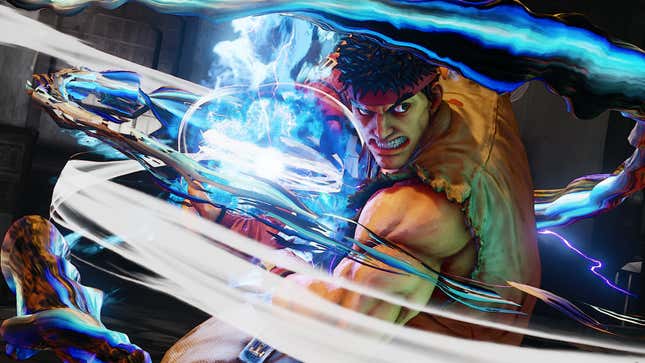
Although the Olympics are known more physical competitive pursuits like gymnastics and swimming, the organization has been inching closer and closer to the world of esports over the last few years. Its latest toe dip into the water comes in the form of a $500,000 gaming tournament hosted with Intel, held during the lead-up to the 2020 Summer Olympics in Tokyo, Japan.
As originally reported by The Esports Observer, the Intel World Open will feature competition in Street Fighter V and Rocket League, with a $250,000 prize pool for each game. Intel’s director of business development Mark Subotnick explained that these two titles were chosen due to the ease with which even casual spectators can keep up with the on-screen action. The legacy of the Street Fighter franchise, especially in Japan, was also a key factor in its inclusion, according to Subotnick.
Open online qualifiers will be held to fill out the national teams of participating countries, with a final qualifying event planned for June in Katowice, Poland to decide who will move on to the official competition in Japan. The Intel World Open itself will lead directly into the 2020 Summer Olympics, taking place at Tokyo’s Zepp DiverCity music hall in the days right before the event’s July 24 start date.
The road that competitive gaming has taken through the world of global sports competitions has been a rocky one. Following the announcement that esports would be featured in the 2022 Asian Games, the 2018 edition held in Indonesia awarded non-official medals to competitors in six different video games, including League of Legends, Hearthstone, and Starcraft II. While Tony Estanguet, the co-president of the Paris Olympic bid committee, briefly flirted with the idea of bringing video games into the fold at the 2024 Summer Olympics, International Olympic Committee president Thomas Bach was less than supportive.
“We want to promote non-discrimination, non-violence, and peace among people,” Bach told the South China Morning Post in 2017. “This doesn’t match with video games, which are about violence, explosions, and killing. And there we have to draw a clear line.”
Less than a year later, however, the International Olympic Committee would partner with Intel for IEM Pyeongchang 2018, a Starcraft II-focused event that was held in South Korea one week before the 2018 Winter Olympics. Shortly afterwards, Timo Lumme, managing director of television and marketing services for the International Olympic Committee, said that the organization would “explore esports’ relationship with the Olympic Movement further” and referred to the potential of including esports in the Olympic games as an “exciting future.” The 2018 Olympic Summit even encouraged “accelerated cooperation” with sports video games.
Having esports in the Olympics is considered by many in the esports industry to be the next step in terms of making competitive gaming a legitimate sport, despite the millions of dollars and sold-out arenas that it has already managed to accrue. Racing towards this vision of mainstream acceptance has the benefit of getting more eyes on competitive games, but it has its downsides. Fighting games especially have made poor transitions to larger markets due to putting their futures in the hands of organizations that don’t seem to understand the community’s grassroots history, and even endemic developers don’t always get it right. That said, the esports bubble often centers on quick and monumental growth, even in the face of a potential burst, and attention will most definitely be on Japan next year with an eye to where the Olympic relationship goes from there.